
It’s been over a decade since Darren Hayes released a new album. After his last tour promoting 2011’s Secret Codes and Battleships, the former Savage Garden singer says he was exhausted by the perpetual cycle of recording and touring.
“I had planned to kinda retire,” he tells Queerty.
Hayes and his husband, the British animator, designer, director, and screenwriter Richard Cullen moved back to the U.S., and Hayes spent the past 10 years studying improv at L.A.’s The Groundlings Theatre. He wrote a musical and studied engineering and programming. He even helped raise a friend’s child.
“Things I never would have done if I’d stayed on the treadmill of putting records out,” he explains.
How about we take this to the next level?
Our newsletter is like a refreshing cocktail (or mocktail) of LGBTQ+ entertainment and pop culture, served up with a side of eye-candy.
But ultimately, he found his way back to music. Now, he’s back with a new album, Homosexual, and while Hayes has been out publicly since 2005, it may be his most unapologetically queer work to date.
The songs on the album are about ridding himself of the shame he says he grew up with around his sexuality, as well as his family’s history of depression and suicide. It’s heavy stuff, but Hayes’s new tunes channel the joy of overcoming trauma and reaching for the light of self-acceptance.
As he prepares to head out on his Do You Remember? tour, which has stops in three North American cities, we chatted with Hayes about the new album, overcoming adversity, and finally getting to do things entirely on his own terms. Here’s what he had to say…
QUEERTY: How did you know it was time to make a new album?
HAYES; That’s the thing! I couldn’t work out why I was a bit depressed, and my therapist said to me, “You’ve been a pop star since your mid 20s. It’s a huge part of what you do. You’ve cut off this source of joy, this artistic output. Your music is a huge part of you just like your sexuality is.” I remember feeling this sense of grief and I didn’t know where it was coming from. It seems obvious now.
I saw the movie Call Me By Your Name, and it sort of triggered something in me. Like a deep wound of the fact that because of my age and the way that I grew up, I never experienced that joy. That just unlocked something in me. I never got to experience the self-acceptance and living without shame when I was in the public eye. I couldn’t be more accepting of myself now, but when I was on Total Request Live, I was living in fear even though I was out to family and friends. It was just this fear that who I was was repulsive.
I remember going to my studio and writing “Let’s Try Being In Love,” and it just flowed. What resulted was this really wonderful adventure of doing it all on my own terms with nobody policing me, nobody talking about my image.
Obviously, this isn’t your first album since coming out publicly. So, what were you trying to convey by calling the album Homosexual?
The point of the title, in some ways it’s a reaction to some of my delayed trauma. In many ways, it’s reclaiming this clinical word. I’m a man in my 50s. I grew up in Australia where, when I was 13 AIDS was something that I thought I would contract just because I had a crush on a boy! Being called a homosexual was the worst thing in the world that could happen to you. I’m aware that it’s a provocative word. It has a clinical history and a history of diagnosing people. For me it was about ridding myself of any residual shame I used to feel even after I came out.
At the same time, I live in the U.S. I live in a world with Ron DeSantis. I live in a world where trans people are this tokenistic punching bag. I feel a responsibility to be as loud as I can about this part of me that was so heavily policed when I was at a major label. I’m doing all the things I was told I couldn’t do, or other artists were told they couldn’t do as a “f*ck you.”
What do you feel when you see out pop stars like Troye Sivan, Olly Alexander, and Lil Nas X?
I remember looking around and seeing this surge of acceptance when it comes to queer artists. People like Meg Stalter or Benito Skinner, but also Lil Nas X, Troye Sivan. Just this acceptance of these fully formed, beautiful, young people who didn’t have to face what I faced when I was at a major label. And I started to get… You know, I started to remember what had happened to me, and it was a very suppressed anger that I felt about what I perceived to be the erasure of who I was when I was at a major label.
You have two tracks on the album called “Homosexual (Act One)” and “Homosexual (Act Two).” Talk to me about those two tracks.
What’s so funny about the song is it’s not actually about sex. I use the word as the highest possible compliment. I spend the entire song talking about my love for somebody else and just saying, “All of my life I’ve been searching for a way to describe who I am, what I am. And what I am is indescribable.” I use all this flowery language. It’s the closest lyrically to Savage Garden’s “I Want You.” I’m trying to say there’s no higher compliment I can give you or myself than saying “homosexual.” Again, it’s taking away all residue of shame from that word and saying it’s a fantastic thing to be. I’m so glad that I am this wonderful variant of humanity and this spectrum of sexuality. The two-part thing is actually just a nod to George Michael. I wanted to make my version of “Faith.”
So much of the press you’re doing around this album has been about trauma. You wrote an essay for HuffPo about your struggles to come out and your abusive childhood and the tendency toward depression that probably exacerbated. How has this promotional cycle compared to those you did for Savage Garden? What’s it been like talking about this stuff?
It’s honestly always been there. I think now people are able to connect the dots. Look, I can never change the fact that I grew up in an abusive home. And even on the Savage Garden records there are songs like “Two Beds and a Coffee Machine.” I was telling the world when I was a 24-year-old that my dad beat my mom, and that song is about three children trying to get our mother into a car and drive it motels. I’ve always been someone that is prone to depression and that thread has always been there. I think that’s been a way that I’ve connected to my audience. In spite of some of the adversity that I speak about in my music, I think I always choose joy. There’s a deep sadness and melancholy that underscores this reaching for joy.
How do you think your career would have been different if you were just starting out now?
Yeah, but the thing is, I’m sure we all think this. I wouldn’t be me if I hadn’t had that experience. Every single turn in the road kind of shapes you. The way that I think, the way I write, the way I sing, my perspective, the way that I judge and make decisions, they’re all based on the things that have happened to me. I think I have a really interesting life.
You and I can sit here and say, “Troye Sivan exists,” or “Lil Nas X exists.” But it’s no bed of roses for Lil Nas X. Now I think the duty is for young people to call attention to an inner life that’s going one. The struggle that I didn’t have is the struggle that young people have which is just existing with their self-esteem intact in a world where your every single act is judged before you even have the time to think about it. I can’t imagine what it would be like to be a young person and not be able to make a mistake. That’s a whole new thing that I never had to experience.
Now that you’re putting out an album that’s so honest, that has been completely on your own terms, do you think about your previous work differently?
No. I think sometimes people expect artists to always be like, “This is the new me and that old stuff was not me.” It’s a continuum for me. I’m very proud of everything. I own it all. All the bad hairstyles, all of it. So, I don’t even differentiate between the Savage Garden work and this work. It’s a continuum. I was young. The love songs that I would have written as a 24-year-old, they’re from the point of view of someone who doesn’t really know much about love. It’s naïve and it is what it is. I would also never insult an audience. The audience owns this stuff, it belongs in the public forum, and I just take care of it.
Tickets for Hayes’ Do You Remember? tour go on sale October 14, 2022, with stops in Toronto (April 12, 2023), New York (April 13, 2023), and Los Angeles (April 14, 2023).



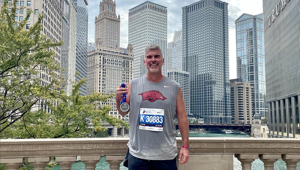
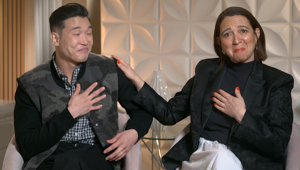
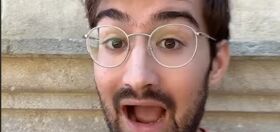

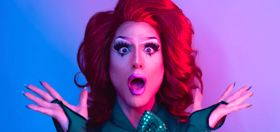
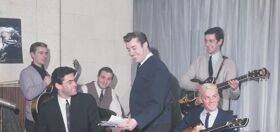
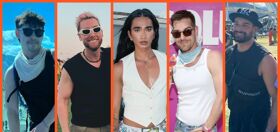


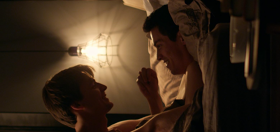
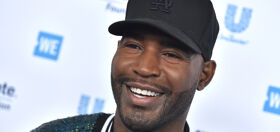
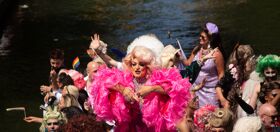

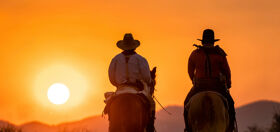
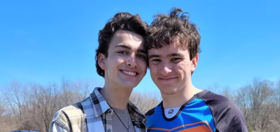
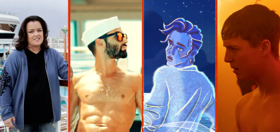
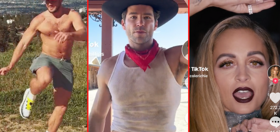
linedrive
Insightful, thoughtful, smart. I like this guy. Great interview.
Thad
Only three tour stops? Darren, I’ll gladly go to New York for you, but Philadelphia has great venues you’d sell out. Come see us
scotty
is the TLA still there on south street? asking for a friend.
Raphael
I was waiting for a new album, and I’m happy for him… But the album is terrible! The songs are weird, long, repetitive and boring. I just couldn’t finish listening to the album.